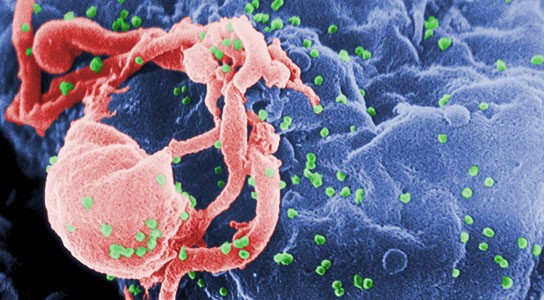Cuba: Extremely aggressive HIV strain that leads to Aids in 3 years discovered

An extremely aggressive strain of HIV has been discovered in Cuba that develops into Aids in just three years.
The virus was found in 73 recently infected patients, 52 of which had already been diagnosed with Aids. Their blood was compared with 22 patients who had developed Aids after a normal period of living with HIV.
Publishing their findings in the journal EBioMedicine, scientists at the University of Leuven in Belgium note that the HIV virus normally attaches itself to human cells through an anchor point called CCR5. After a number of years, the virus switches to the anchor point CXCR4 – which coincides with a faster progression to Aids.
In the patients in Cuba, scientists found that the virus makes this transition much faster, targeting the anchor point CXCR4 early after infection, drastically shortening the healthy phase and progressing to Aids.
In some cases, the transition was so fast they might not have realised they were infected before becoming ill.

Professor Anne-Mieke Vandamme and her team observed abnormally high doses of the virus and the defence molecule Rantes in the patients with the new strain. Rantes is a molecule that is part of our natural immune response and acts by binding to CCR5.
The high concentration suggests most CCR5 proteins were no longer available to serve as an anchor point for the virus, possibly meaning it bypassed straight to CXCR4.
"The observation that all study patients who were infected with the recombinant HIV variant went on to develop Aids within three years of infection supports this theory ... The unexpectedly rapid progression of this HIV variant increases the risk that patients become very ill before ever realising that they are infected," the authors said in a statement.
Researchers said the strain has been found in Africa, but there are too few cases to study fully. They also said it is more widespread in Cuba. "We propose that [the strain] is evolutionary very fit and causing rapid progression to Aids in many newly infected patients in Cuba," they said.
© Copyright IBTimes 2025. All rights reserved.





















